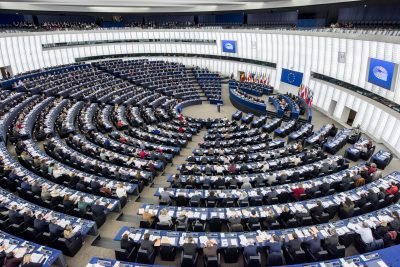In your Civics course, you learned about several elements that are crucial to politics: what a civil society is, what it means to be a global citizen, how the government works, and other concepts that contribute to any functioning society.

European Parliament in session, 2017 (Source: European Parliament)
Living in Canada, you can see how these concepts operate on a larger scale, across an entire country. But do these concepts apply on an even larger scale, such as the European Union? Do these concepts function in an organization of 28 different countries, each with their own political identities and values? The leaders of the EU have been attempting to adapt the concepts of civil society, citizenship and government so that they function across national boundaries.
In the Politics unit, you will explore the political similarities and differences between Canada and the European Union. You will also discover the conditions that make the EU unique from any other country or organization in the world.
| Topics | Curriculum |
| START HERE!!! Introduction: The EU – A Political System, but not a State | |
| Topic 1 The EU and Human Rights |
CHV2O Civics – Units 3 CPW4U Canadian and World Politics – Unit 1 CLN4U Canadian and International Law – Units 2-5 |
| Topic 2: Foreign Affairs in the EU |
CHV2O Civics – Unit 3 CPW4U Canadian and World Politics – Units 2-4 |
| Topic 3: How Government Works in the EU |
CHV2O Civics – Units 1 & 2 CPW4U Canadian and World Politics – Unit 3 |
| Briefing: The European Union Constitution and the Lisbon Treaty *NEW* | |
